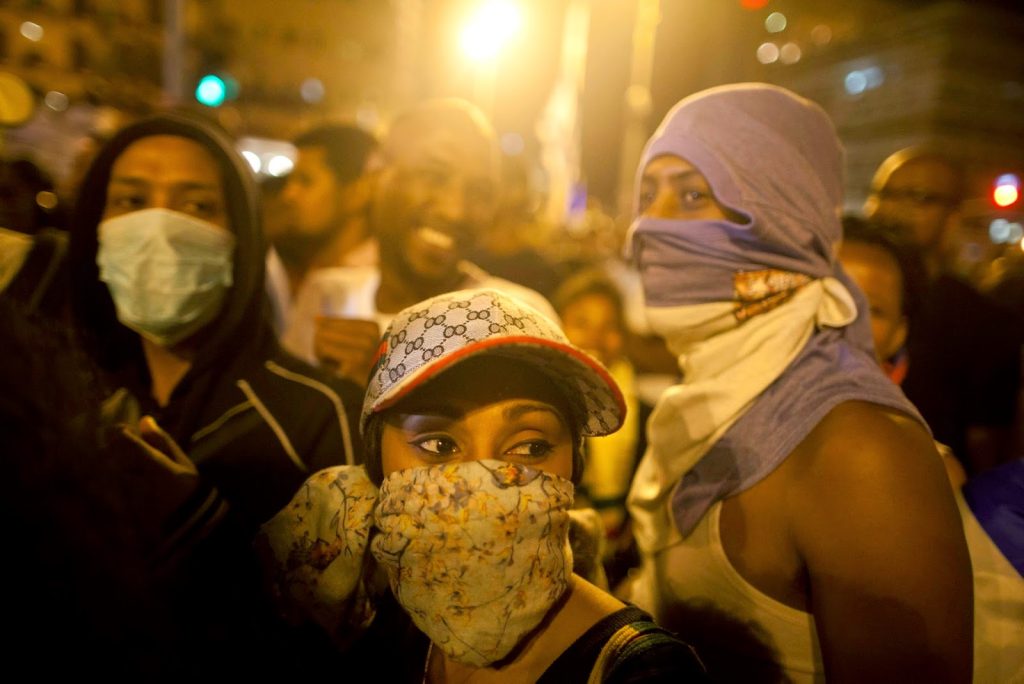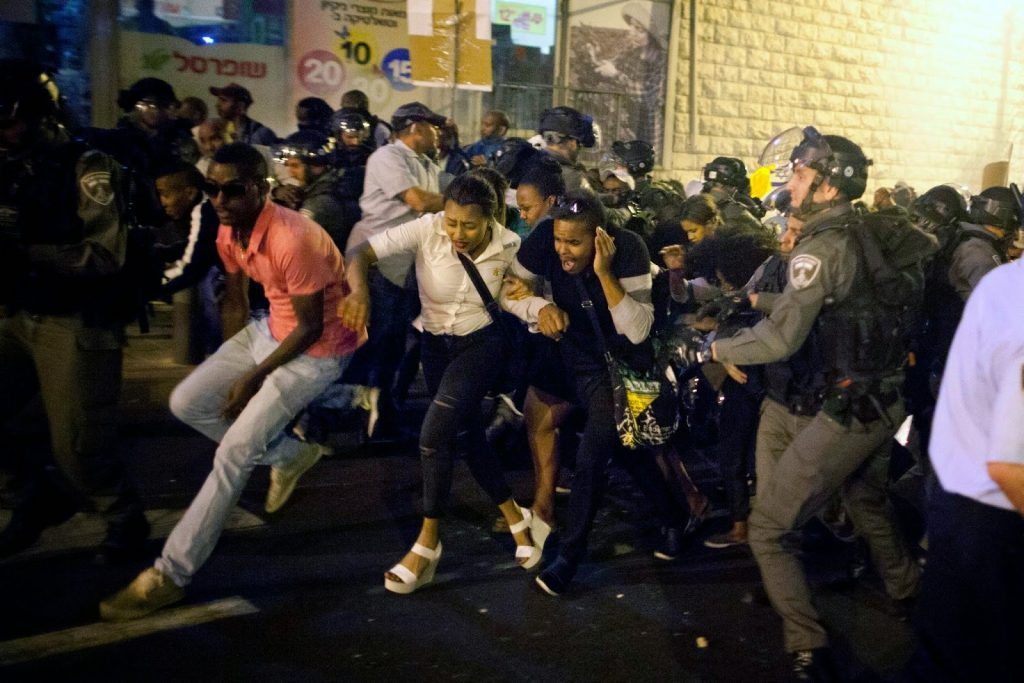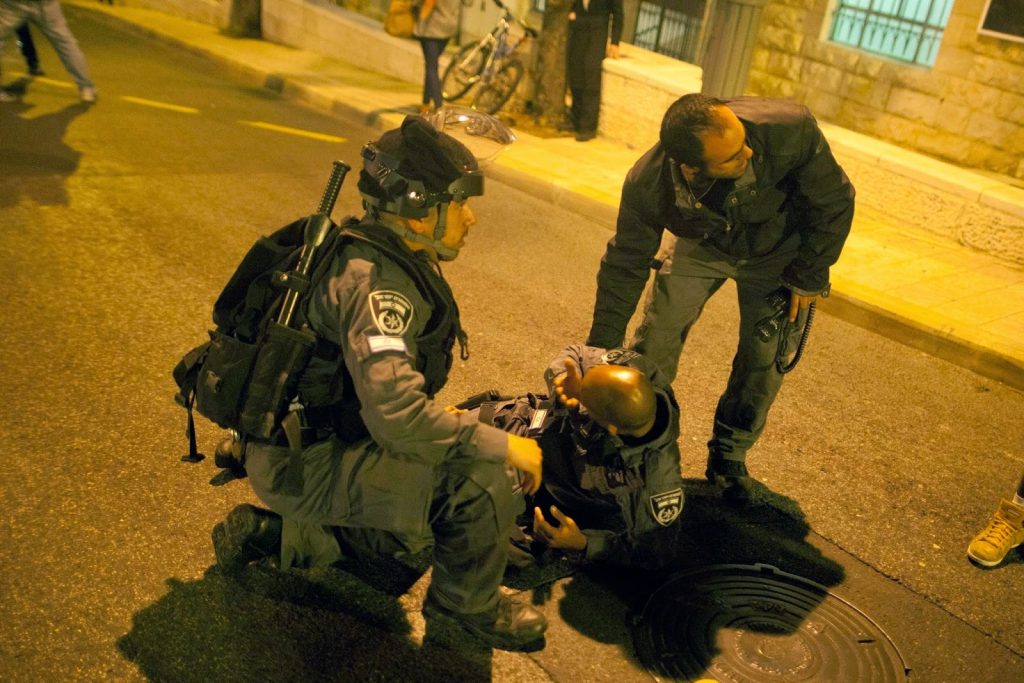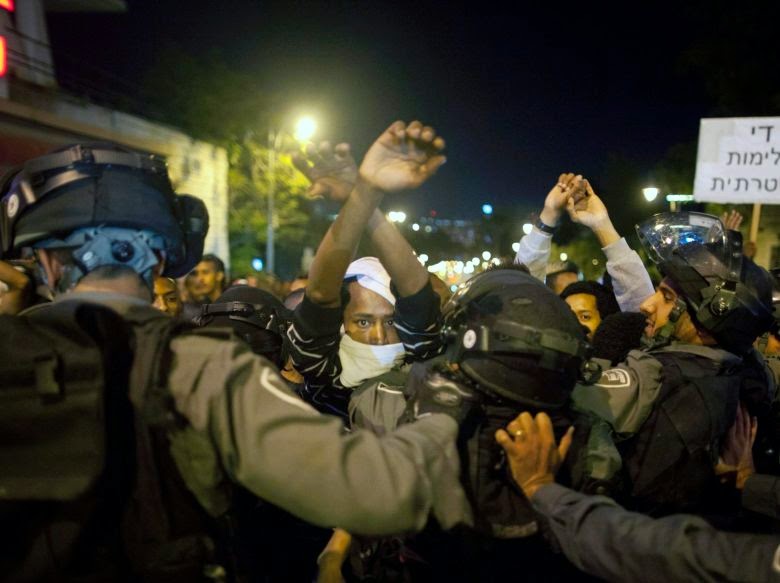Ethiopian
Jews (‘Falashas’) in Israel have been the subject of persistent racism ever
since they emigrated over a decade ago.
Many Zionists believe they are not Jews and the Chief Rabbinate insisted
they be recircumcised unlike the Soviet Jews.
The reason for this is that they are Black. Opinion polls have shown that attitudes to
them are virtually the same as that towards Palestinians, with the proviso that
they are in Israel as of right, whereas the Palestinians are considered to be guests,
there on sufferance.
Protesters, police clash at Ethiopian Israeli demo against police brutality
Ethiopian Israeli soldier; 10 protesters and three police officers receive
medical treatment.
Photo by Lior Mizrahi
Israel’s Ethiopian Jewish community, demonstrated in Jerusalem on Thursday
against police violence. The demonstration continued into the evening, with
violent clashes between protesters and police.
 |
| Protesters against police brutality toward Ethiopians in Jerusalem, April 30, 2015. |
The demonstration in front of the national
Israel Police headquarters was prompted by a video of an incident on Sunday in
the Tel Aviv suburb of Holon in which a policeman is seen pushing an Israeli
soldier of Ethiopian descent, Demas Fekadeh, to the ground after he didn’t
initially move at the policeman’s request. (Police were attempting to clear the
area due to a suspicious object.) Another policeman is then shown in the
video pummeling Fekadeh.
The protest started with a few hundred
protesters and grew to around 1,000 by the evening, moving from the police HQ
to the center of the city, a short distance from the Prime Minister’s
Residence. Later in the night, the protesters blocked the intersection between
King George St. and Jaffa St.
Israel Police said that forces tried to
disperse the protesters, who they said threw stones and bottles. There were
also reports of protesters throwing fire bombs.
Medical teams treated 10 protesters and three
police officers for injuries. Two police officers and seven protesters were
rushed to Jerusalem hospitals for further treatment. Two protesters who tried
to attack police were detained.
Jerusalem Mayor Nir Barkat arrived at the
scene and spoke to the protesters trying to lower the flames. “Do you
doubt that the prime minister, ministers, and 120 Knesset members want to
embrace the Ethiopian community?” Barkat asked a young protester, who
responded “I don’t want a hug. Look at me as you would look at a white
person. I don’t need a hugs. That is a patronizing attitude that says that I’m
incapable, so let’s give him a hug.”
 |
| Protesters clash with police officers during a protest against police brutality toward Ethiopians in Jerusalem, April 30, 2015. (Lior Mizrahi) |
Jerusalem Police Chief Chico Edri told the
protester leaders that he understood their rage and that the police was going
to investigate the grievances raised by the protesters, and work tirelessly to
assure that its ranks are not involved in any unethical deeds. Edri called on
the protesters not to let the protest get out of hand.
Earlier in the evening outside the police headquarters, the forces tried to
hold back the protesters to keep open Route 1, a major thoroughfare in
Jerusalem, but the demonstrators managed to block the road and also to disrupt
movement of the city’s light rail line. Periodic confrontations erupted between
protesters and motorist who were unable to make their way through the area.
 |
| Police officers in a protest against police brutality toward Ethiopians in Jerusalem, April 30, 2015. (Lior Mizrahi) |
Police earlier approached leaders from the
Ethiopian community in an effort to diffuse the situation. Earlier in the
afternoon, they used mounted officers in an effort to disperse the crowd of
demonstrators.
The demonstrators protested what they labeled
racist conduct on the part of police and called for the police officers
suspected of violence to be put on trial. Officials at the Justice Ministry’s
police investigation division said they have opened an investigation into the
incident in Holon.
The most extreme recent incident involving a
confrontation between police and Ethiopians took place in the northern
town of Binyamina last year. In that incident, police used a Taser gun against
a 22-year-old Ethiopian Israeli, whom they reportedly suspected of breaking
into a house. He was taken to the police station in nearby Zichron Yaakov and
was found by his family unconscious and manacled. He died several months later
in what police ruled a suicide.
 |
|
Protest against police brutality in Jerusalem
|
Zionist Union Knesset Shelly Yacimovich
condemned the conduct of the police in Holon, and in a Facebook post said the
darker one’s skin is the greater the racism is. “It wouldn’t be
far-fetched to expect that if [Fekadeh], the soldier who was hit, was a
light-skin soldier, preferably with an Ashkenazi appearance, he would not have
sustained harsh blows without consideration from police.”
